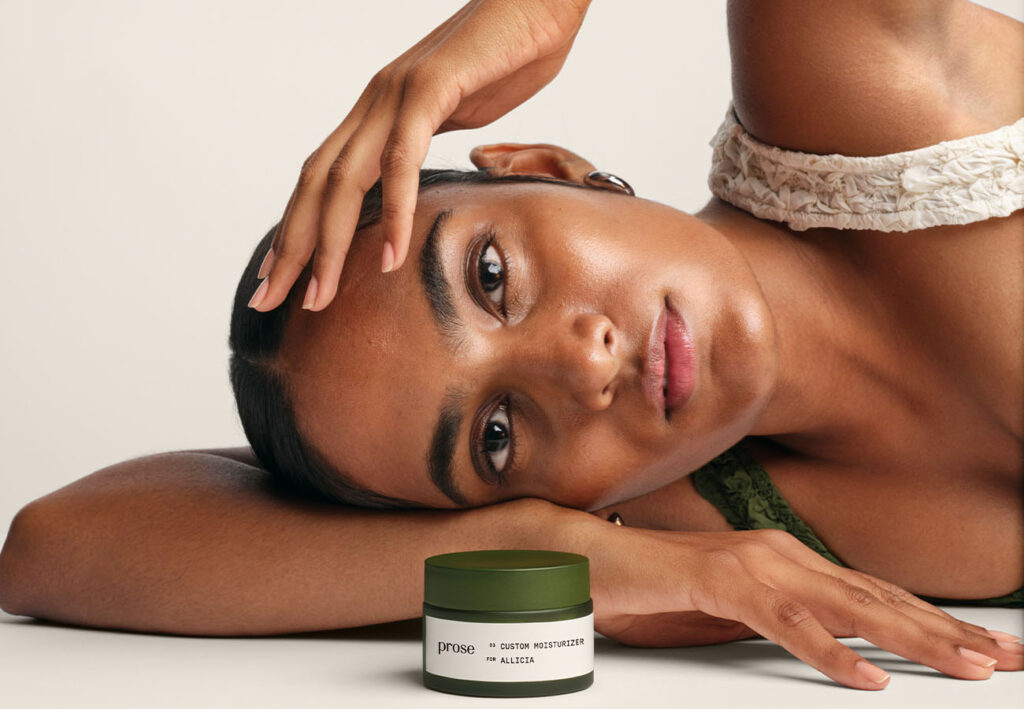Myth #1: Overwashing oily skin will help control oil production.
Obsessively washing away your excess oil might seem like the initial solution to clean skin, but overwashing can signal your skin that it’s dehydrated, which can cause it to produce more oil to compensate. “You also should be mindful of using the right ingredients that won’t strip your skin or break down your moisture barrier,” says Jess Bowers, an aesthetician in New York City. For example, face washes with oat oil will cleanse and hydrate skin without feeling too heavy.
Myth #2: Sunscreen will clog your pores.
Sunscreen should be a no-brainer year-round. Lucky for us, gone are the days we have to worry about thick, slick, pore-clogging SPFs making oily skin feel worse. Today’s formulas are non-greasy and feel weightless on your skin while protecting it from broad-spectrum UV rays. Look for “non-comedogenic” and “oil-free” on the packaging to help skin feel decongested.
Myth #3: You can skip the moisturizer.
Healthy skin is moisturized skin. A friendly reminder: Your skin is overproducing sebum because it’s dehydrated. Just because it may feel slick, it doesn’t mean you should forgo a proper moisturizer. Focus on a regimen that helps balance the skin’s moisture levels to prevent an overproduction of oil. In addition to a face wash, use a face moisturizer specifically formulated with ingredients to help control sebum, like niacinamide (which also aims to even out hyperpigmentation).
Myth #4: Oily skin doesn’t show signs of aging.
“The influx of oil helps maintain skin moisture and [protects] the skin barrier. This can reduce the appearance of fine lines and make it more resilient against environmental factors like sun exposure and pollution,” says Bowers. While oily skin might show fewer fine lines, it still needs proper TLC to keep it looking its best.
Myth #5: Oily skin is more high maintenance.
Unless you love a 10-step skincare routine in the name of self-care, the truth is that taking care of your skin (no matter your skin type) doesn’t need to be complicated. “I would keep products simple,” says Bowers. “Products and ingredients that are excessively irritating or contain a lot of alcohol can be too harsh and should be avoided. You should also steer clear of physical exfoliation and opt for chemical exfoliators like salicylic acid. Exfoliation is great for skin overall, but severe physical exfoliation can damage the skin’s barrier, causing irritation and dryness that can result in the skin producing more oil,” says LoGerfo.
Myth #6: Changing your diet and lifestyle doesn’t affect your skin.
Oily skin, in many cases, is genetic. Regardless of your skin type, your skin will still benefit from a nutrient-rich diet, regular exercise, and keeping stress under control (as stress increases cortisol levels associated with increased oil production). For hydration from the inside out, “make sure to drink a lot of water,” says Bowers. And to “help balance hormone fluctuations [that can impact your skin], ensure you’re getting enough sleep,” says Bowers.
Whether you have oily, combination, sensitive, or dry skin, Prose custom skincare is designed to help you understand your skin type and tailor the right ingredients. Take the Prose skincare consultation questionnaire to get personalized recommendations you can use daily.
Always made to order. Never made to waste.
Exclusive Trial Offer Get 60% Off + Free Gift







